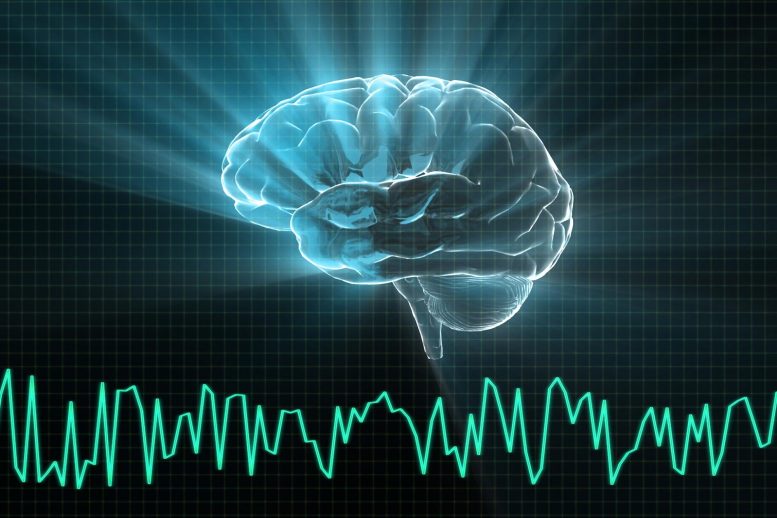
Gene editing reverses brain genetic reprogramming caused by adolescent binge drinking.
Gene editing may be a potential treatment for anxiety and alcohol use disorder in adults who were exposed to binge drinking in their adolescence, according to the findings of an animal study published on May 4, 2022, in the journal Science Advances.
The study was issued by researchers from the University of Illinois Chicago (UIC) who have been studying the effects of early-life binge drinking on health later in life.
In earlier research, the UIC team found that binge drinking in adolescence alters brain chemistry at the enhancer region of the Arc gene — for activity-regulated cytoskeleton-associated protein immediate-early gene — and reduces Arc expression in the amygdala of both rodents and humans. This epigenetic reprogramming of the Arc gene in the brain’s emotion and memory center contributes to a predisposition to anxiety and alcohol use disorder in adulthood.
In the new research, the scientists show that this epigenetic reprogramming, which persists throughout life, can actually be reversed with gene editing.
“Early binge drinking can have long-lasting and significant effects on the brain and the results of this study offer evidence that gene editing is a potential antidote to these effects, offering a kind of factory reset for the brain, if you will,” said the study’s senior author Subhash Pandey, the Joseph A. Flaherty Endowed Professor of Psychiatry and director of the Center for Alcohol Research in Epigenetics at UIC.
Pandey and his team used a gene-editing tool called CRISPR-dCas9 in their experiments to manipulate the histone acetylation and methylation processes at the Arc gene in models of adult rats. These processes make genes more or less accessible for activation.
First, the researchers studied adult rats with intermittent alcohol exposure in their adolescence, corresponding to about age 10 to 18 in human years. They observed that when dCas9 was used to promote acetylation, a process that loosens chromatin and allows transcription factors to bind to the DNA, Arc gene expression normalized. And, indicators of anxiety and alcohol consumption decreased.
Anxiety was measured through behavioral testing, such as by documenting the exploratory activity of rats placed in maze tests, and preference for alcohol was measured by monitoring the amount of liquid consumed when the rats were presented with a choice of two bottles consisting of options such as tap water, sugar water, and varying concentrations of alcohol (3%, 7%, and 9%).
In a second model, the researchers studied adult rats without early alcohol exposure. When inhibitory dCas9 was used to promote methylation, which tightens chromatin and prevents transcription factors from binding to DNA, Arc expression decreased and indicators of anxiety and alcohol consumption increased.
“These results demonstrate that epigenomic editing in the amygdala can ameliorate adult psychopathology after adolescent alcohol exposure,” the authors report.
“Adolescent binge drinking is a serious public health issue, and this study not only helps us better understand what happens in developing brains when they are exposed to high concentrations of alcohol but more importantly gives us hope that one day we will have effective treatments for the complex and multifaceted diseases of anxiety and alcohol use disorder,” said Pandey, who is also a senior research career scientist at Jesse Brown VA Medical Center. “That this effect was seen bidirectionally validates the significance of the Arc enhancer gene in the amygdala in epigenetic reprogramming from adolescent binge drinking.”
Reference: “Targeted epigenomic editing ameliorates adult anxiety and excessive drinking after adolescent alcohol exposure” by John Peyton Bohnsack, Huaibo Zhang, Gabriela M. Wandling, Donghong He, Evan J. Kyzar, Amy W. Lasek and Subhash C. Pandey, 4 May 2022, Science Advances.
DOI: 10.1126/sciadv.abn2748
Co-authors of the study, “Targeted epigenomic editing ameliorates adult anxiety and excessive drinking after adolescent alcohol exposure,” are John Peyton Bohnsack, Huaibo Zhang, Gabriela Wandling, Donghong He, Evan Kyzar and Amy Lasek, all of UIC.
The research was supported by the National Institute on Alcohol Abuse and Alcoholism (U01AA019971, U24AA024605, P50AA022538, and F32AA027410) and the Department of Veterans Affairs.
1 Comment
I want to say that everyone please not drunk alcohol It causes of cancer